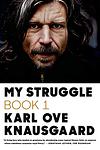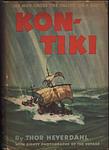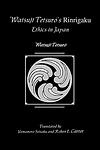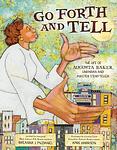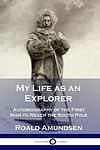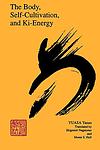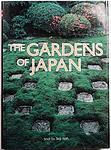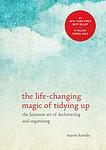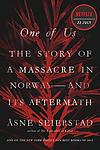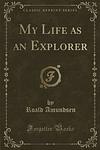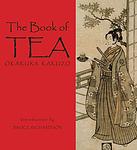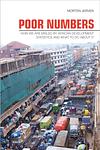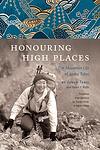The Greatest Norwegian, Japanese "Nonfiction" Books of All Time
Click to learn how this list is calculated.
This list represents a comprehensive and trusted collection of the greatest books. Developed through a specialized algorithm, it brings together 300 'best of' book lists to form a definitive guide to the world's most acclaimed books. For those interested in how these books are chosen, additional details can be found on the rankings page.
Genres
Countries
Date Range
Reading Statistics
Click the button below to see how many of these books you've read!
Download
If you're interested in downloading this list as a CSV file for use in a spreadsheet application, you can easily do so by clicking the button below. Please note that to ensure a manageable file size and faster download, the CSV will include details for only the first 500 books.
Download-
1. The Pillow Book by Sei Shōnagon
"The Pillow Book" is a collection of personal observations, anecdotes, and reflections by a woman in the Heian court of Japan. It presents a detailed and vivid picture of court life, including the lavish ceremonies, the rivalries and intrigues, the idle pastimes of the courtiers, and the romantic escapades of the empress and her consorts. The book also contains lists, poetry, and personal musings, providing a unique perspective on the culture and customs of the Heian period.
-
2. Kon-Tiki by Thor Heyerdahl
This book is a captivating real-life adventure story about a Norwegian explorer and his crew who set out on a daring voyage across the Pacific Ocean on a balsa wood raft. The journey, undertaken to prove a controversial anthropological theory about the settlement of Polynesian islands, is filled with danger, excitement, and discovery. The author's vivid descriptions of the perilous journey, the magnificent sea life they encounter, and the ultimate success of their expedition make this a thrilling and inspiring read.
-
3. The Bookseller of Kabul by Asne Seierstad
This book provides an intimate and eye-opening look into the everyday life of an Afghan family. The narrative follows a bookseller in Kabul, who despite the oppressive Taliban regime, courageously continues his trade. The story delves into his family dynamics, the struggles of his two wives, his children's lives, and the societal norms and customs they navigate. It paints a vivid picture of life in Afghanistan, exploring the themes of love, courage, resilience, and the power of literature.
-
4. My Struggle by Karl Ove Knausgaard
The book in question is an autobiographical novel that delves deeply into the minutiae of the author's life, exploring his personal relationships, emotions, and the everyday experiences that shape his identity. It is a candid and introspective narrative that spans across various stages of his life, from childhood to adulthood, and examines themes such as family, death, love, and ambition. The author's unflinching honesty and detailed prose invite readers to reflect on the complexities of their own lives, as he scrutinizes the ordinary moments that, collectively, define who we are.
-
5. The Confessions Of Lady Nijo by Lady Nijo
This book is a candid autobiographical account of a Japanese woman who lived during the Kamakura period. Initially serving as a concubine to the Emperor, she later becomes a wandering Buddhist nun. Her narrative provides a unique insight into the court life of the time, detailing her intimate experiences, political intrigues, and the societal expectations of women. Her journey from the luxuries of the imperial court to the ascetic life of a nun offers a poignant exploration of love, spirituality, and personal transformation, reflecting the complex interplay between the secular and religious life in medieval Japan.
-
6. Farthest North by Fridtjof Nansen
"Farthest North" is a riveting firsthand account of a polar expedition undertaken in the late 19th century. The author, a Norwegian explorer, recounts his daring attempt to reach the North Pole by allowing his specially designed ship to be frozen into the Arctic ice and carried by the drift. The narrative includes fascinating descriptions of the Arctic environment, thrilling tales of survival against harsh conditions, and scientific observations. The expedition, although it did not reach the North Pole, achieved the highest latitude to that date and contributed significantly to Arctic exploration.
-
7. The Kon-Tiki Expedition: By Raft Across the South Seas by Thor Heyerdahl
The book is a thrilling account of a daring and adventurous expedition across the Pacific Ocean on a balsa wood raft named Kon-Tiki. The journey, led by a Norwegian explorer, is an attempt to prove that South Americans could have settled Polynesia in pre-Columbian times. The narrative is filled with descriptions of dangerous encounters with marine life, harsh weather conditions, and the challenges of surviving on the open sea. The expedition's success provides compelling evidence in support of the author's theory.
-
8. An Inquiry Into The Good by Nishida Kitarō
"An Inquiry into the Good" explores the philosophical concept of 'good' through an examination of reality and experience. The author integrates Western philosophical approaches with Eastern thought, particularly Zen Buddhism, to delve into topics such as pure experience, intuition, and the unity of consciousness. The work seeks to establish a foundation for understanding reality that transcends traditional dualities such as subject-object and ideal-real, proposing instead a notion of reality that is dynamic and continuously self-creating. This philosophical inquiry aims to articulate a comprehensive worldview that harmonizes ethical, metaphysical, and epistemological perspectives.
-
9. Watsuji Tetsuro's Rinrigaku by Watsuji Tetsuro
"Watsuji Tetsuro's Rinrigaku" explores the intricate nature of ethics from a distinctly Japanese perspective, emphasizing the interconnectedness of individual and social morality. The book delves into the concept of 'betweenness' as a fundamental structure of human existence, arguing that ethical relations are inherently tied to the spatial and temporal contexts within which individuals live. This work critically examines Western ethical theories, proposing a communal and geographical approach to understanding human relations, and offers a comprehensive framework for considering moral decisions within the collective fabric of society.
-
10. An Introduction To Zen Buddhism by D.T. Suzuki
This book serves as a concise primer on Zen Buddhism, exploring its philosophical underpinnings and its practice. It delves into the history of Zen and its roots in the teachings of the Buddha and subsequent development in China and Japan. The text elucidates key concepts such as satori (enlightenment), the importance of meditation, and the use of koans (paradoxical anecdotes or riddles) in training the mind to transcend dualistic thinking. Aimed at Western readers, the book also discusses the potential of Zen to influence modern life and thought, providing a thoughtful introduction to those seeking spiritual insight and a deeper understanding of Eastern philosophy.
-
11. The Master Of Go by Yasunari Kawabata
The book is a thoughtful reflection on the changing face of Japanese culture, told through the lens of a professional Go match between an aging master, representing the old guard and traditional values, and his young, innovative challenger who embodies the new ways. As the intense match unfolds, it becomes more than just a game; it is a poignant exploration of tradition versus progress, the individual versus society, and the tension between the spiritual purity of the art and the commercialism of modern times. The narrative, based on a real-life event, delves deep into the psychology of its characters and the strategic intricacies of Go, offering a subtle yet profound meditation on the nature of competition and the end of an era.
-
12. The South Pole by Roald Amundsen
The book is a detailed firsthand account of the first successful expedition to the South Pole, led by the author, a noted Norwegian explorer. It chronicles the meticulous planning, the journey's challenges, and the strategic decisions that enabled the team to reach the pole on December 14, 1911, ahead of their British rivals. The narrative combines personal reflections, vivid descriptions of the harsh Antarctic environment, and insights into the teamwork and innovation crucial for survival and success in one of the most extreme climates on Earth.
-
13. Hiroshima Notes by Kenzaburō Ōe
"Hiroshima Notes" is a poignant collection of essays that delve into the aftermath of the atomic bombing of Hiroshima, exploring the enduring impact on the survivors and the city itself. The author, through a series of visits to Hiroshima in the 1960s, reflects on the moral and ethical implications of nuclear warfare, the resilience of the human spirit, and the responsibilities of humanity. Through interviews with survivors and thoughtful contemplation, the book provides a deep and multifaceted perspective on suffering, healing, and the quest for peace in the shadow of one of history's most devastating events.
-
14. The Body by Yasuo Yuasa
"The Body" explores the intricate relationship between the mind and body from the perspective of Eastern philosophies and medicine, particularly focusing on Japanese thought. The book delves into how cultural differences between the East and West influence the understanding and treatment of the body. It discusses the historical and philosophical evolution of body concepts in Japan, integrating theories from Western psychoanalysis and philosophy to challenge the often dualistic approach seen in Western thought. The author proposes a more holistic, integrated view of the body-mind connection, emphasizing the importance of understanding this relationship in the context of human health and well-being.
-
15. The Gardens Of Japan by Teiji Itoh
"The Gardens of Japan" explores the art and aesthetics of Japanese gardens, tracing their development from ancient times to the modern era. The book delves into various garden styles, from the serene rock gardens of Zen Buddhism to the ornate tea gardens and expansive stroll gardens. Richly illustrated and detailed, it examines the philosophical and cultural underpinnings that have shaped garden design in Japan, highlighting the intricate interplay of nature, spirituality, and art. The author provides insights into the symbolic elements of these gardens, their use of space and natural materials, and the meticulous care that goes into their creation and maintenance, offering readers a deep appreciation of this enduring art form.
-
16. The Life Changing Magic Of Tidying Up by Marie Kondo
"The Life Changing Magic of Tidying Up" is a practical guide that offers a fresh perspective on decluttering and organizing one's home. The author introduces the KonMari Method, a systematic approach to tidying that encourages individuals to keep only items that truly spark joy in their lives. Through insightful anecdotes and step-by-step instructions, the book provides valuable insights on how tidying can lead to a transformative and joyful lifestyle.
-
17. One Of Us: The Story Of Anders Breivik And The Massacre In Norway by Asne Seierstad
One of Us by Asne Seierstad is a detailed account of the 2011 terrorist attack in Oslo, Norway, carried out by Anders Breivik. The book explores Breivik's background, motives, and planning leading up to the attack, as well as the aftermath and impact on the survivors and families of the victims. Seierstad's thorough research and interviews with those affected provide a comprehensive and emotional portrayal of the tragedy, shedding light on the complexities of extremism and the devastating consequences of hate.
-
18. Ecology, Community And Lifestyle by Arne Naess
"Ecology, Community and Lifestyle" is a philosophical text that outlines the principles of deep ecology, a movement emphasizing the intrinsic value of all living beings and the need for radical shifts in modern human societies to sustain ecological balance. The book delves into the interdependence between human life and the environment, advocating for a comprehensive transformation in our lifestyles and political systems to foster a sustainable relationship with the earth. It combines insights from ecology, philosophy, and sociology to propose a more harmonious way of living that respects the limits of the planet's resources and promotes a thriving, diverse biosphere.
-
19. My Life As an Explorer (Amundsen) by Roald Amundsen
This autobiography tells the story of a Norwegian explorer who led the first expeditions to reach the South Pole, traverse the Northwest Passage, and fly over the North Pole in a dirigible. The book provides a detailed account of his adventures, including his experiences with the indigenous peoples of the Arctic, his struggles with harsh weather conditions, and his insights on leadership and survival in extreme environments. The author's love for exploration and his respect for the natural world shine through in his writing.
-
20. The Book Of Tea by Kakuzō Okakura
"The Book of Tea" explores the intricate and nuanced philosophy behind the Japanese tea ceremony, presenting it as a blend of Zen Buddhism, Taoism, and the ethics of the Samurai. The author delves into the aesthetic and cultural significance of tea in Japan, discussing how it influences various aspects of life and art, from architecture to flower arranging. The book also reflects on the broader implications of tea as a spiritual and meditative practice, emphasizing simplicity, naturalness, and a profound appreciation for the beauty of the everyday. Through this lens, the tea ceremony becomes a metaphor for a harmonious and mindful approach to life.
-
21. A Death in the Family by Karl Ove Knausgaard
"A Death in the Family" is a deeply personal and introspective narrative that delves into the complexities of familial relationships, childhood, death, and memory. The protagonist, a writer, is forced to confront his past and his relationship with his alcoholic father after his death. The novel explores the impact of this death on the protagonist's life and his struggle to come to terms with his complicated feelings of love, resentment, and guilt. The narrative is a profound exploration of the human condition, the intricacies of family dynamics, and the lasting impact of grief and loss.
-
22. Totto Chan, The Little Girl At The Window by Tetsuko Kuroyanagi
The book is a charming autobiographical memoir of a young girl's experiences at an unconventional school in Tokyo during World War II. The narrative focuses on the unique educational approach of the school's headmaster, who values freedom, creativity, and individuality in the educational process. Through a series of heartwarming episodes, the book illustrates how the school becomes a delightful haven for the girl, fostering her curiosity and love of learning amidst the backdrop of a society facing the challenges of war. The story is a testament to the impact of progressive education on young minds.
-
23. Poor Numbers by Morten Jerven
This book critically examines the reliability of economic statistics in Sub-Saharan Africa, revealing a significant gap between the reported data and the actual economic realities on the ground. The author delves into the systemic issues plaguing statistical offices across the continent, including underfunding, political interference, and a lack of technical capacity, which collectively contribute to the production of inaccurate economic data. By analyzing the processes and methodologies used to gather and report these statistics, the book sheds light on the profound implications these "poor numbers" have for policy-making, economic development, and international perceptions of African economies. Through this exploration, it calls for a reevaluation of how economic data in these countries is collected and used, advocating for reforms that could lead to more accurate and meaningful measurements of economic progress.
-
24. The Power To Compete by Hiroshi Mikitani, Ryoichi Mikitani
This book delves into the economic challenges facing Japan, offering a dialogue between a father, an economist, and his son, a successful entrepreneur. Together, they explore the reasons behind Japan's stagnation and propose solutions to revitalize its economy. They argue that Japan needs to embrace innovation, deregulation, and entrepreneurship to regain its competitive edge in the global market. The book combines a deep understanding of economic principles with practical insights from the business world, making a compelling case for structural reforms and a new mindset to power Japan's comeback on the world stage.
-
25. Honouring High Places by Junko Tabei
"Honouring High Places" is a compelling collection of autobiographical stories chronicling the remarkable life of the first woman to reach the summit of Mount Everest. The book offers a deeply personal account of the challenges she faced, from societal expectations in Japan and the physical demands of climbing to the joys and tragedies encountered on her expeditions. Through her vivid storytelling, the author paints a picture of her groundbreaking climbs, her dedication to environmental issues, and her commitment to encouraging women to embrace adventure and challenge gender norms in the world of mountaineering.
Reading Statistics
Click the button below to see how many of these books you've read!
Download
If you're interested in downloading this list as a CSV file for use in a spreadsheet application, you can easily do so by clicking the button below. Please note that to ensure a manageable file size and faster download, the CSV will include details for only the first 500 books.
Download


